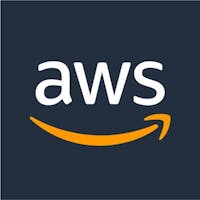Some of the most transformational technologies are those that not only solve a problem, but also dramatically change an entire field of study or industry. Jake Schofield and Labstep believe they are doing just that. Their cloud-based technology is changing the way scientists and researchers document, share and ultimately replicate their discoveries.
Stemming from first-hand frustrations in the lab, Schofield and his team realized that maintaining a traditional paper lab book, or deploying any of the available digital lab books, often resulted in lost results, wasted time and missed collaborative opportunities. Poor design, expensive subscriptions and time-consuming installation inspired Labstep to build an alternative platform that aims for the documentation and sharing of research to be easy, safe and secure.
Schofield recently spoke with EdSurge about the success of Labstep in both the scientific research and academic communities.
EdSurge: Tell us about Labstep and the problem that you're solving for academics.
Schofield: Originally, I worked in biomedical and genetic research. We were making major advances in science but using very archaic ways to gather, collect and document our data and processes. The industry is still more notebook-oriented. Historically, about 60 percent of all research has not been able to be replicated. Initially, we set out to be an academic or teaching tool, but soon became a powerful tool for all scientific researchers as well. We realized that there was a huge need for capturing their work, while sharing and collaborating in real time.
We didn’t want to see great scientific work continue to be dependent on a scientist or researcher having to also spend additional and separate time trying to capture their work. We knew there had to be a better way. We wanted to tie together all of the tools and resources in science and collect a process record that you can share in real time with colleagues. It seemed like this would really benefit the science itself. Labstep has set out to bring real positive change to science and lab environments in both academic and commercial research. In academia, an instructor can now access their research methodology in real time and be sharing it with 50 students as an example. On the commercial side, one of the first rapid COVID-19 tests developed in the U.S. used Labstep as their platform.
What is the importance of providing Labstep for free for academics?
Our mission was to have a positive impact and benefit as many scientists and researchers as possible. The commercial researchers such as big pharma and industrial scientists pay for Labstep which allows us to offer it to individuals in academia for free. Once we get many users at one institution, we set up more of an institutional arrangement tying into their systems. But it’s free for all individual users to start. We now have a big team to support both academics and private researchers. We always had the idea to solve a problem in terms of a pain point felt by users and then worked out a mission that aligned with our goals.
How is Labstep transforming how research is carried out? Is it about saving time and money?
All of the above. Science has recognized that reproducibility is a problem. We have had digital notebooks and lab reports for 10 years, but they have depended on the individual researchers to do the manual work. This is about our application allowing all of the devices, tools and instruments to collect the data and information, while sharing and collaborating in real time. When you make the ground-breaking discovery—let’s say a new cure for cancer—you can share the steps and processes so others can benefit. It’s incredibly disruptive for both researchers and academics.
We’re not a notebook where you write down what you’ve done, but rather we are a collaboration tool that captures a snapshot of the steps and processes and then that is shared in real time. You can have others commenting and taking a look at the work. You can share meaningful insights in a collaborative way. We see ourselves as a stepping stone to change the way all research is conducted. Science is a bit broken. We need to make sure we capture the process and apply these to other research and discoveries. It’s about making sure one’s work is reproducible.
Any especially memorable success stories within academia?
The community has grown organically. We will often get one user and then other colleagues come on board. It might start with someone at Oxford University, but then they collaborate with someone in America. The largest life science research facility in Europe—The Francis Crick Institute in London—started using Labstep with individual lab groups and then it grew to an institute-wide deployment. They are a real hub with collaborators all over the world. These guys are literally global leaders in the science community in key areas such as cancer, immune systems, malaria health and aging. We are working with many other large research facilities and organizations around the world, but Francis Crick has a very large and high profile position with hundreds of researchers there. If you take a powerful, influential and disruptive research organization and deploy Labstep institute wide, tremendous scientific work is going to be advanced.
How have AWS and AWS EdStart contributed to Labstep’s success?
Being part of the AWS EdStart, the edtech accelerator, program and partnering with AWS has been incredibly powerful and impactful for us. Cloud computing is the industry standard for a reason. It allows one to scale up rapidly with disruptive technologies. Allowing us to produce a browser-based solution that can be accessed on any device is a game-changer for the scientific community. It’s been a huge advantage to be part of the AWS network and leverage all of those relationships and technologies. There are many factors in our success, but it’s an advantage to bring a disruptive cloud-based solution to market with amazing technical support. This partnership has provided a greater understanding of the education space.
Any tips for entrepreneurs who are entering education?
I was a scientist first. So, we have been very scientific about how we create products. We are mission-driven. We focus on problem solving. It’s about pulling together some of the best minds to join the team. We have followed more scientific methodology vs. start-up methodology. I might be an entrepreneur first and foremost, but I approach my work scientifically. My advice to others would be to make sure you’re starting with solving a real problem. Make sure it’s about looking for a pain point that you want to alleviate versus just being a value-add. There are some unique business aspects to working in the education space. However, it’s about not getting distracted by anything else beyond solving a problem.
What's next for Labstep?
We have some really disruptive and powerful things coming out soon. We want to become the go-to, foundational tool for lab-based research. We want to be the dominant global tool for scientific research and experimentation. We want to change how scientific research is conducted and impact the research in positive, accelerative ways. We want to be part of all of vital, disruptive research—medicines, chemicals, food—and see that real world impact. Yes, we’re building a business. But beyond that, the clients that we're partnering with are having a huge positive impact. It's exciting to be part of their success and global problem solving.



